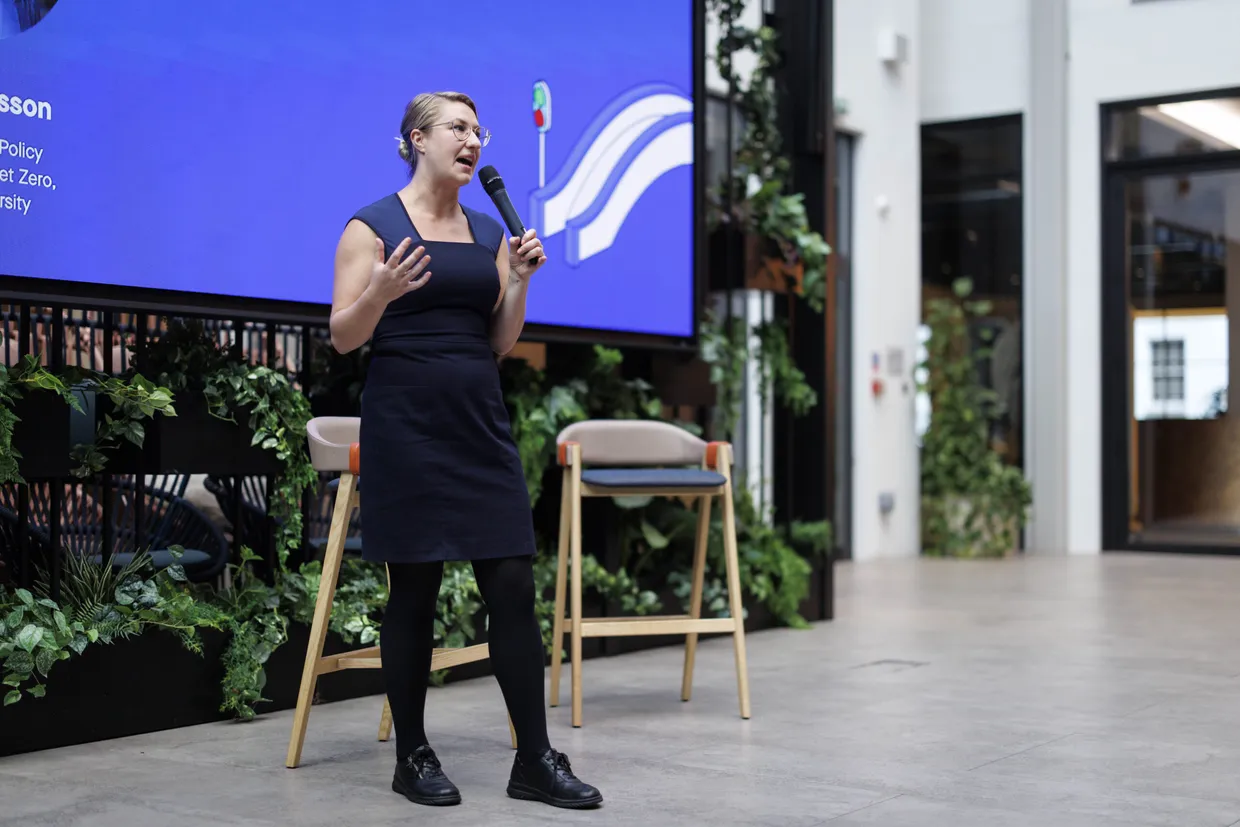You may be wondering whether these are distant, theoretical goals. Kaya argues that this is not the case, and urged companies to treat these needs as “external dependencies” in their transition plans — areas where they will be unable to reach their targets without actively shaping the market, investing early, or influencing policy.
The power companies forget they have
In a year when climate regulations from the European Union to the United States have been redrawn, it’s only natural that business leaders might be left feeling bewildered by, and alienated from, the evolving regulatory landscape. However Kaya argues that many more business leaders can and should be actively seeking to shape climate rules. Drawing from her experience as both a researcher and a policy writer, Kaya pointed out that only a handful of business leaders currently do so..
“I was in a room of over 100 climate leaders—and only four of us worked on policy. That’s not democracy. If businesses want to succeed on climate, they have to get involved in building the systems that make it possible.”
Kaya called for companies to use their products, portfolios, capital, and political influence together. She encouraged sustainability teams to work more closely with public affairs colleagues to push for strong, effective regulation — not just to meet internal targets, but to help create the conditions for others to follow.
From scope to sphere
In closing, Kaya proposed a shift in thinking, from only tracking carbon reductions across the traditional emissions scopes, to also evaluating “spheres of influence”. These include finance, policy, and demand signals that shape broader climate outcomes.
“We may not be able to measure every gram of CO₂ precisely,” she said, “but we can measure whether a company is showing up where it matters most.”
Oxford Net Zero is working with partners like Sweep and the Exponential Roadmap Initiative to explore how to integrate this thinking into future standards,without abandoning rigor, transparency, or the essential work of cutting emissions.





